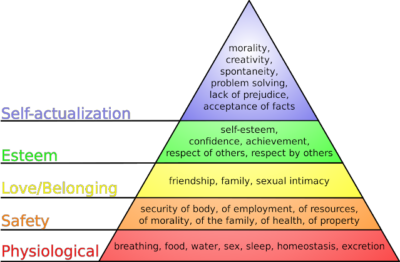October 1, 2024 Artistic eroticism, Internet and virtual life
Is this sexuality healthy ?
Technological Autism. Is this sexuality healthy ?

The instantaneous nature of communication, the freedom that can be expressed by taking refuge in anonymity, and a whole new set of rules that have been born and developed in the virtual world now leave ample room for the possibility of new relationships, new friendships, and even new loves, with ways, times, and places that have very different characteristics from those of the real world.
Thus, even classic dating, once animated by the anticipation of meeting and trembling hope, now seems almost unfashionable, as obsolete as a rotary telephone would be compared to an iPhone.
In fact, it is the Web that seems to have taken over the role of the indispensable place for making new acquaintances, and it is teenagers who, more than anyone else, seem to be the first to be unable to find their precise real identity if it is not first anticipated and filtered through a corresponding virtual profile.
Moreover, when I speak of teenagers, I am not necessarily referring to those who have not yet reached the age of majority.
A question I have often asked myself, and to which I have not yet found a satisfactory answer, is whether the physical or the mental relationship is more important in falling in love.
Knowing that both conditions are indispensable, I wonder how something as totally immaterial as virtuality can replace the encounter with the other in terms of both physicality and sensuality.
Attraction as well as repulsion cannot be completely dissociated from biochemical processes in which the senses play a fundamental and indispensable role, so that looking at the person in front of you, listening to his voice, brushing his skin, smelling his perfume and savoring a kiss from him can trigger that whole internal revolution we call “falling in love”.
A revolution that, once activated, sets in motion a whole series of other mechanisms that underlie arousal and desire.
Moreover, the knowledge of the other person is also, and above all, composed of all that is communicated to us through non-verbal language, such as gestures, tone and modulation of the voice, looks that hide emotions, shyness, embarrassment, simplicity, curiosity.
And this varied wealth of sensations cannot pass through a computer screen, so although it can be somewhat adequately reproduced by verbal language and a good ability to express oneself in written form, it cannot completely replace the senses.
People who are shy, who are incapable of maintaining relationships, who have emotional barriers to relationships, or who are burdened with obligations and constraints in real life that do not allow them to satisfy on a daily basis the desire for transgression that they feel within themselves, often take refuge in the Web, finding in the virtual identity a pleasant alternative reality with which to express their most secret personality, and in the video something that performs an effective protective function to secure their “real self”.
In this way, virtual reality becomes a kind of indispensable mental refuge, where a good part of existence is transferred, where best friends, comforting psychotherapists, passionate lovers and sometimes even surrogate parental figures meet.
In this context, even Eros and sexuality take on a new and different consistency, leading to a boundless mental preoccupation that, however, diminishes the importance of the body, its desires and its true primary needs, even to the point of abusing the daily use of information technology, with the frequent and reassuring prerogative of camouflaging loneliness and satisfying one’s desires according to a pattern completely different from the one traced by Maslow in his pyramid.

And so there are those who forget that they have a body, distort their sleep-wake cycle, reduce their sense of hunger and satiety, eat in front of a monitor or sleep with the computer on, radically altering their perception of space and the passage of time.
Space becomes a virtual space bounded by the edges of the screen, and time is transformed into a virtual time with completely different characteristics from those of the real world.
But what are the specific characteristics of love relationships born in the virtual world, both in the affective and erotic spheres ?
Certainly, one characteristic is the immediacy of the relationships, their simplicity, the speed with which they take place, and above all, I repeat, the total absence of the body.
These are relationships that grow in the absence of bodily intimacy, without scents, moods, tastes, without the anxiety of performance or the need to test oneself against the partner’s demands.
A scenario, therefore, characterized by an absolute absence of inhibitions, by a lack of modesty unimaginable in reality, by an immediate approach to relationships, even the most intimate ones, without laborious mediation and, above all, by a very strong involvement at the visual level.
Moreover, the fact that it is possible to acquire an alternative or at least ambiguous sexual identity, not fully defined, by using nicknames of the opposite sex, opens up a whole series of scenarios that would not even be remotely conceivable in real life, let alone permissible at the level of intimacy.
But is this sexuality really healthy ?
Can eros benefit from this instant visual stimulation that has completely replaced physicality and everything to do with the body, or does it only serve to soothe the deep insecurities, frustrations and anxieties of those who cannot relate to the outside world in a proper way?
It is now widely believed among those who study the phenomenon that the absence of the physical and sensory aspect in the virtual world actually produces what is called “technological autism,” that is, a state of emotional loneliness that arises precisely from the lack of a physical encounter with another.
This is a consumerist sexuality, affected by bulimia, imprisoned in a linearity aimed at obtaining immediate pleasure without real emotional involvement and, above all, disconnected from what true eroticism should be.














